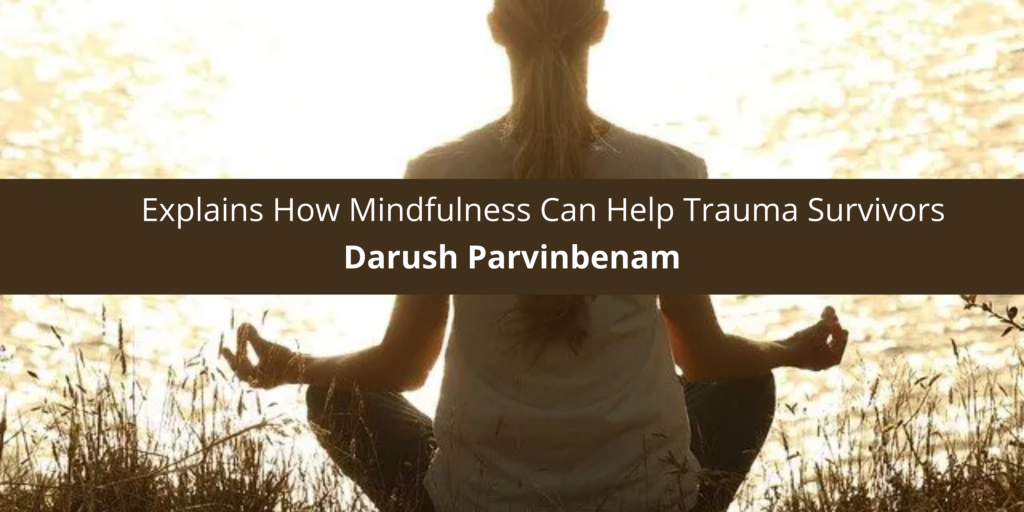Darush Parvinbenam Explains How Mindfulness Can Help Trauma Survivors


Darush Parvinbenam recently explained how mindfulness can aid trauma survivors.
COLUMBUS, OH / Mindfulness has been indicated, and is currently an evidence-based practice to improve, and have considerable positive impact on mental and physical well-being of individuals. Clinical psychotherapist Darush Parvinbenam recently discussed how mindfulness can improve the lives of individuals dealing with varying kinds of physical/emotional traumas.
Trauma is a blanket term, because it can take many mental and physical forms, and can be caused by any number of circumstances ranging from childhood neglect, emotional, physical, sexual abuse, and community violence to intense grief or a life-altering accident. Darush Parvinbenam explained that mindfulness can help individuals deal with all forms of traumas due to its evidence-based positive neurobiological and psychological impacts.
“Mindfulness can have several positive effects on the brain to improve resiliency, and reduce trauma-related symptoms.” Darush Parvinbenam said. “Scans of the brain have shown that even brief mindfulness practices can increase gray matter in the brain. This could be associated with increased self-awareness and emotion regulation. These are important components of reducing trauma-related emotional dysregulation and interpersonal difficulties. Many trauma survivors struggle with considerable relational issues, and inability to form and maintain healthy connections and long-term relationships,” said Darush Parvinbenam.
Mindfulness meditation has been directly linked to calming worry and providing clearer paths of thinking. This allows individuals to more effectively handle memories associated with trauma, especially if they are triggered and experiencing flashbacks of past traumatic experiences.
Darush Parvinbenam explained that practicing mindfulness mediation doesn’t mean all thoughts of the trauma will disappear but does allow trauma survivors to process information and traumatic memories more clearly, and with less emotional activation.
“Being mindful involves remaining focused on the current moment and being nonjudgmental,” Parvinbenam said. “Meditation has long been one of the most popular ways to reach a state of mindfulness that creates new connections in the brain responsible for emotional regulation. These new connections contribute to creating a sense of calm mindful awareness.”
Parvinbenam suggested a few mindfulness exercises that could reduce trauma-related symptoms. These include activities like gentle yoga, muscle relaxation, mindful walks, deep breathing programs, and of course, mediation. He added that even the simple act of mindful eating can help reduce the symptoms caused by traumatic experiences and events.
“Traumatic memories are very much based in the past,” Daryush Parvinbenam said. “Mindfulness brings individuals battling trauma back to the present moment. This can pull them out of a challenging cycle of reliving those traumatic moments time and time again. The goal is to become psychologically and emotionally present.”
Parvinbenam finished by stating that someone suffering from trauma should always seek a professional to help them with working through their past trauma and help them develop a mindfulness practice. A professional can provide effective mindfulness exercises, such as guided meditations that have been designed specifically for trauma survivors. A mental health professional can also help the survivors with the stabilization skills that may be needed if certain emotions are aroused. Starting with the help of a professional can provide the techniques needed to continue mindfulness practices.
